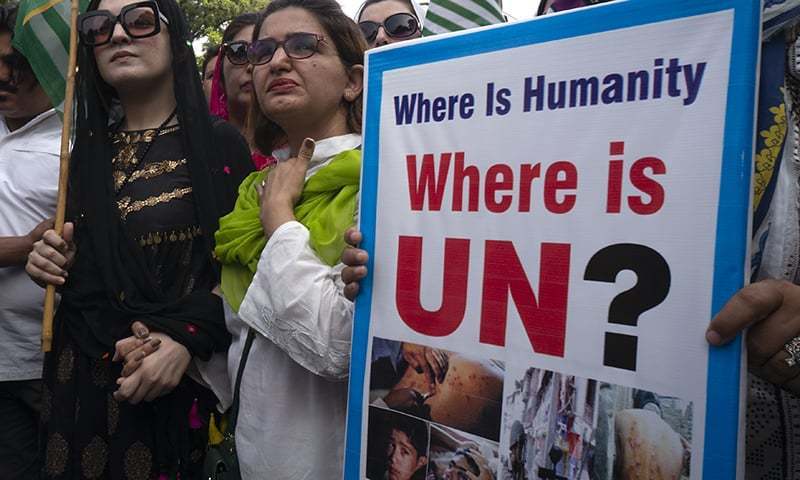
Indian authorities must ensure a prompt, independent and impartial investigation into the recent unlawful killings of civilians by armed groups in Kashmir, Amnesty International India said today.
The killings of three people belonging to the Hindu minority community last week adds to the long-standing violence against civilians that has been escalating since the unilateral revocation of Jammu & Kashmir’s special autonomy on 5 August 2019 by the Government of India.
“The Indian authorities must take urgent steps for the protection of the people of Kashmir. For decades, people of Jammu & Kashmir have suffered from gross human rights violations and abuses committed by both state and non-state actors. The sheer impunity with which the human rights of the people of Jammu & Kashmir have been systematically disregarded by Indian authorities must end if we are to fulfil the rights of victims and help ensure that such abuses against civilians are not repeated,” said Aakar Patel, chair of Amnesty International India Board.
The Indian authorities must take urgent steps for the protection of the people of Kashmir
Aakar Patel, chair of Amnesty International India Board
Media reports suggest that at least 19 civilians have been killed in 2022 so far, of which seven belonged to the Hindu minority community including a schoolteacher, shopkeeper, government employees and a casual daily worker. According to the Government of India, between August 2019 and November 2021, 87 civilians were killed by armed groups in Jammu & Kashmir. An increasing number of Hindu minorities are now reportedly fleeing their homes due to the fear of the rising threat to their lives as armed groups target them for being alleged government ‘collaborators’.
“Since 2019, the Indian authorities have imposed collective punishment measures against the Kashmiri population under the garb of ‘counter-terrorism’ measures. But the recent spate in targeting of civilians raises further questions on the government’s actions which include a heavy-handed crackdown on peaceful protests in the valley including those recently held by Kashmiri pandits who were subjected to baton charges and tear gas shells. The relentless crackdown on politicians, journalists, human rights activists and even the closure of the state human rights commission has further stifled independent voices and left the people of Kashmir without an appropriate remedy,” said Aakar Patel.
Since the revocation of Jammu & Kashmir’s special status in 2019, the Indian authorities, have arrested many human rights defenders including journalists and activists under the Unlawful Activities (Prevention) Act, India’s primary counter-terrorism law. At least 36 journalists have faced interrogation, raids, threats or physical assault for their reporting until now. According to Access Now, people in Jammu & Kashmir faced at least 85 internet shutdowns in 2021 – one of the highest in the world. The shutdowns were imposed for long periods of time and in violation of India’s Supreme Court that held that internet shutdowns must satisfy the tests of necessity and proportionality. According to the digital rights organization, these shutdowns were imposed as part of “counterterrorism” measures.
READ ALSO: As UK exit Brexit, citizens in EU can’t vote in local elections, ECJ rules
Even though, the Indian authorities have claimed a significant improvement in the security situation in Jammu & Kashmir, the Armed Forces (Special Powers) Act remains on the law books. The legislation officially tasks the security forces with protecting civilians, upholding national security and combatting violence by armed groups. However, in the name of security operations, security force personnel have historically committed many grave human rights violations – including torture, rape and extrajudicial executions – which have gone unpunished. The failure to address these abuses have violated the rights of the victims to justice and remedy, which is enshrined in the Constitution of India and the international human rights law.
“It is not too late for the Government of India to take meaningful steps towards creating an inclusive and safe society instead of peddling a false notion of normalcy in the region and encouraging the perpetration of more abuses. Until then, the Indian government’s historical failure to protect the people of Kashmir will keep feeding into this never-ending cycle of abuses and impunity,” said Aakar Patel.
Indian government’s historical failure to protect the people of Kashmir will keep feeding into this never-ending cycle of abuses and impunity
Aakar Patel












